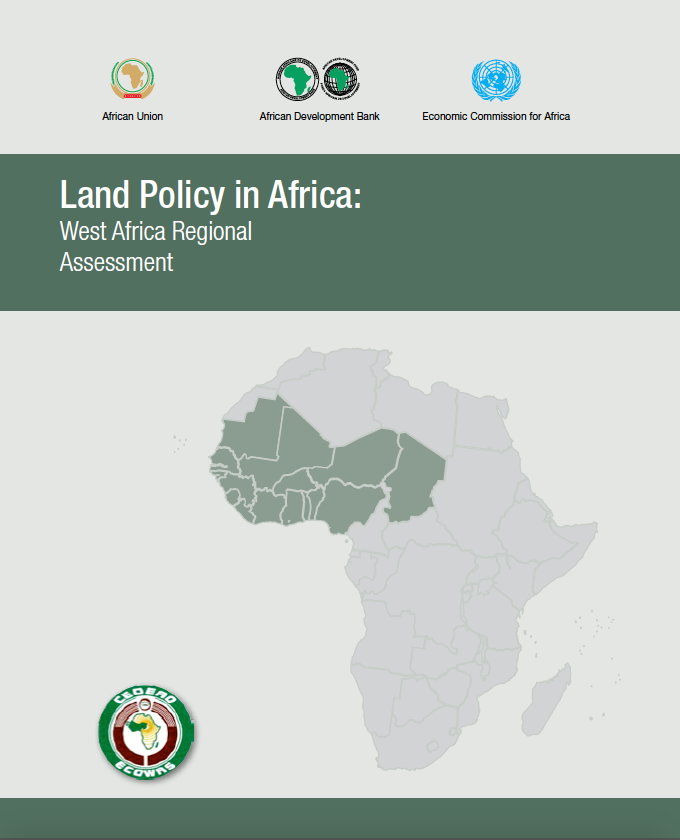Resource information
The African Union Commission (AUC), the United Nations Economic Commission for Africa (ECA) and the Africa Development Bank (AfDB), acting as a consortium, have launched a joint initiative to develop a land policy framework in Africa to strengthen land rights, enhance productivity and secure livelihoods. Working in close collaboration with the regional economic communities (RECs), regional studies and regional consultations are being conducted to provide inputs into the development of the framework. This report is on the West Africa region. The report has been compiled primarily from a desktop study, using existing literature and other information accessed via the Internet. It has been validated and enriched with inputs and comments gathered from a regional workshop held in Ouagadougou from 15–18 April 2008. Details provided on the countries in the region, as could be obtained from such sources, have been updated from the regional workshop and synthesised as country profiles.
The report considers the critical issues providing the context for discussing land issues affecting West Africa as a region. These include the political, social and economic context, colonial legacy and legal plural systems, the operations of regional economic communities and other regional initiatives, impact of demography, migration and urbanization, conflicts and post-conflict issues, as well as shared resources and ecosystems. The report then considers the relevance of key issues and challenges to the West Africa region as identified by the LPI consortium in the continental backgound document. The issues include state sovereignty over land, drought, desertification and floods, protecting the commons, including pastoral rights, evolution of the land market and security of tenure, decentralization and its effect on efficient land management, land and mining, and gender and land issues. The issue of biofuels and the land requirement for providing the feedstock and HIV/AIDS are discussed as critical emerging issues.
Out of the key issues presented and discussed, the Ouagadougou workshop identified five priority issues of utmost importance to the region. These are:
- Security of tenure
- State sovereignty over land
- Good governance in land administration
- Funding for the development and implementation of land policies
- Protecting customary land rights.
The report then considers the land policies existing in member countries in the region, and the policy formulation processes. Only four countries have a land policy document, formulated through different mechanisms: Burkina Faso, Ghana, Guinea and Sierra Leone. All other countries have land laws in operation with different foci. The implementation mechanisms of the various laws and policies are also discussed, particularly in the context of massive decentralization taking place in the region. Lessons from the various processes and what is needed to improve the land policy formulation processes in the region to ensure strengthened land rights, enhanced productivity and secure livelihoods are also considered. The gaps in terms of knowledge, and human and financial resources needed to improve the land policy environment in the region are also discussed. Finally, proposals for improving the draft for the Africa-wide land policy framework are made. The key recommendation which runs through the report is that some of the key challenges facing the region can be tackled at the regional level and that it will require more commitment from governments in the region to push the processes forward in a meaningful way and achieve real impacts on the livelihoods of the people in the region.


